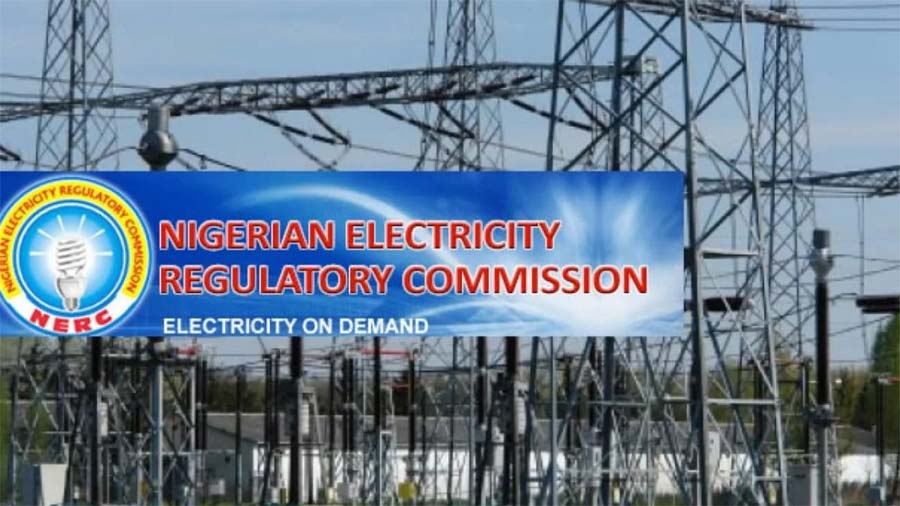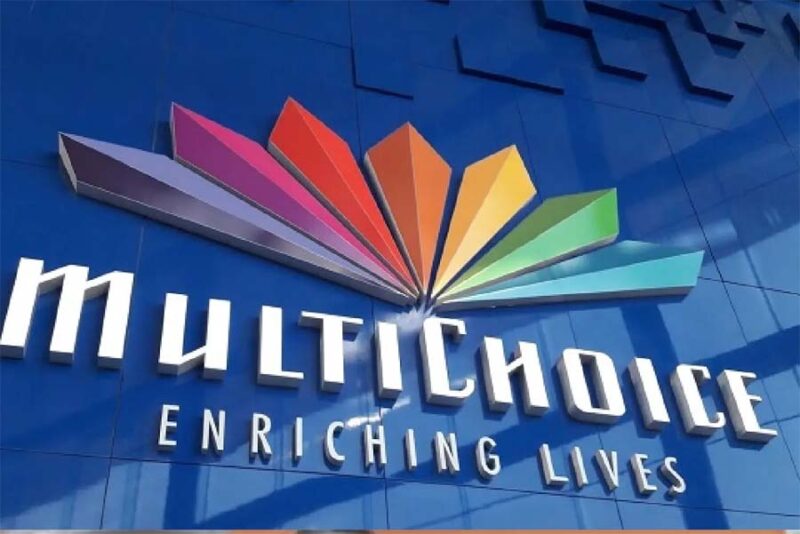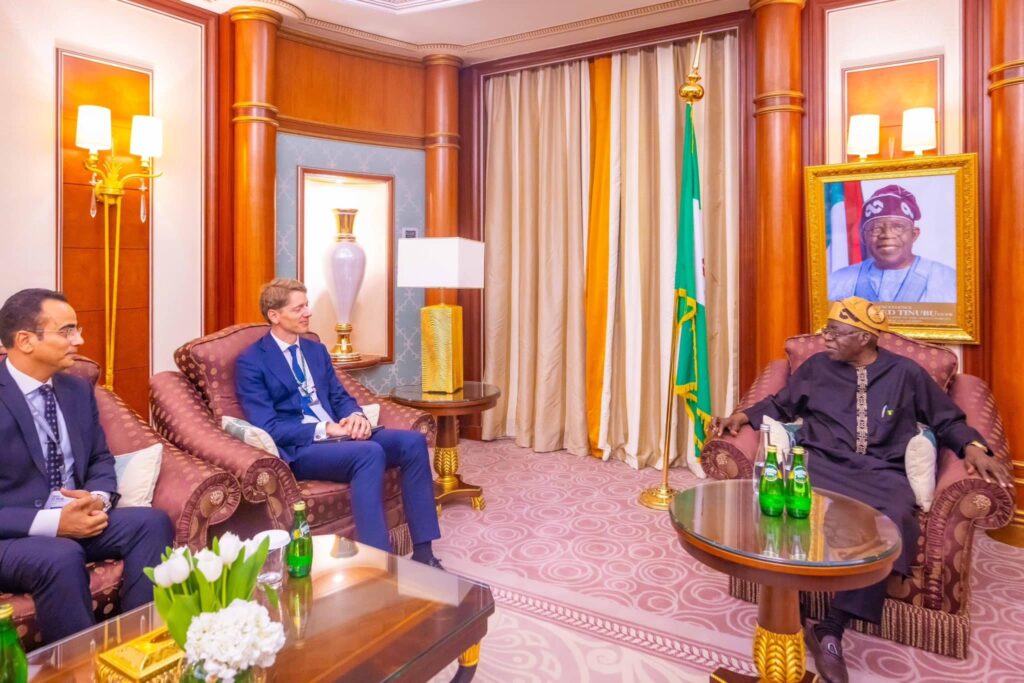Business
FG suspends electricity tariff hike as power subsidy hits N1.6tn

FG suspends electricity tariff hike as power subsidy hits N1.6tn
The Nigerian Electricity Regulatory Commission, on Wednesday, released the 2024 electricity tariffs which showed that the Federal Government is to shoulder about N1.6tn subsidy this year to avert electricity tariff hike.
In the tariff review applications of the 11 power distribution companies in Nigeria, the NERC revealed what it approved as their different cost-reflective tariffs and what was allowed as tariffs by the commission following the Federal Government’s subsidy.
The NERC disclosed this in the regulatory instruments on the Multi Year Tariff Order 2024 for the different power distribution companies.
It said the order shall take effect from January 1, 2024, and shall cease to be effective on the issuance of a new tariff review order by NERC for each particular Disco.
The reports indicated that the tariffs should naturally rise considering various economic fundamentals and industry parameters such as the rise in foreign exchange, cost of gas, inflation, among others.
But an analysis of the MYTO 2024 documents for various Discos indicated that the NERC retained the electricity tariffs for 2023, based on the subsidy being paid by the government this year.
Taking Ikeja, Benin and Abuja Discos for instance, while the cost-reflective tariffs approved by NERC for the Discos for 2024 were N112.10/Kilowatt-hour, N126/kWh and N120.88/kWh respectively, what the regulator approved for the power firms were N56.6/kWh, N60.1/kWh and N63.24/kWh respectively.
It was observed that the NERC retained the tariffs charged by the Discos in 2023, as the Federal Government would pay their respective outstanding balance through subsidy this year.
Further analysis of the reports showed that the subsidy for only the month of January 2024 which the government would incur for consumers under Ikeja Disco was N19.85bn; for Benin Disco, N11.74bn; and for Abuja Disco, N19.44bn.
READ ALSO:
- Dangote refinery: Eterna becomes official domestic sales distributor
- Parents groan as institutions hike fees by over 100 per cent
- Soyinka alleges Obi, Datti’s involvement in 2023 election annulment script
The cumulative subsidy for the entire year is what the power sector regulator puts at N1.6tn.
It must, however, be stated that what the Discos submitted to the NERC as their own calculated cost-reflective tariffs were far higher than the cost-reflective tariffs approved for them by the regulator.
However, despite approving lower cost-reflective tariffs for the power firms, the allowed tariffs were further reduced, as the balance would be sorted by the N1.6tn subsidy to be paid by the Federal Government.
The Federal Government has been paying subsidies on electricity before now, but it has not been this much.
For instance, on December 18, 2023, The PUNCH exclusively reported that the Federal Government spent N375.8bn on electricity subsidy between January and September 2023, as power consumers paid a total of N782.6bn for the commodity during the same period.
The report stated that in the first quarter of 2023, the Federal Government subsidised power by N36bn, this increased to N135.2bn in the second quarter, and jumped to N204.6bn in the third quarter. Figures for the fourth quarter are not released yet.
The NERC, however, stated on Wednesday that the N1.6tn subsidy for 2024 was too high and stressed that it was not sustainable.
It also revealed that four states had developed their electricity law, while four others were in the process of completing theirs.
Providing explanation on the new tariff order released by the commission, the Chairman, NERC, Sanusi Garba, said, “On the MYTO, I want to correct the wrong impression that for one year we haven’t had any reviews.
“The reality is that the reviews are being done, but what has happened is that what you pay as a customer is a blend of regulation and policy. So if we determine that you should be paying N150 and the Federal Government says ‘no you should pay N60, I will pay the difference,’ then that’s what it is. The government will now provide the money.
READ ALSO:
- Breach of contract: Court dismisses Davido’s preliminary objection
- Our soldier didn’t commit suicide, he accidentally shot himself dead – NA
- NIN: Phone users complain over barred lines after linkage
“So that is why in the current tariff order, you will see that this is what you should pay, while this is what the government says you should pay, because the government will provide the difference, until there is a change of policy.”
Also commenting on the development, the Vice Chairman, NERC, Musiliu Oseni, declared that the N1.6tn electricity subsidy was unsustainable, stressing that subsidy was more beneficial to the rich.
He said, “In this order, we provided what the tariffs are supposed to be, and what is being charged based on the subsidy policy of the government. And in each order, you will see the amount of subsidy per Disco.
“And in total, this year we are heading to about N1.6tn subsidy, which most likely everybody here will feel is not sustainable. If nothing is done to electricity tariffs, that is what the subsidy will likely be. Now, how much is the total budget of this country?
“You can do the maths and find out the percentage that that will represent, and whether we should continue to do that. Meanwhile, evidence has shown that it is the rich that benefit more from the so-called subsidy.”
Reacting to what his vice said, Garba stated that “hopefully, going forward, we will focus more on the vulnerable customers in terms of the benefit of subsidy. Then those who can truly afford the true cost of electricity will pay for it.”
On states that have enacted their own electricity laws, the Commissioner, Legal, Licencing and Compliance, NERC, Dafe Akpeneye, said four states now have their own electricity laws, while four others were making finishing touches on theirs.
Outlining states that have developed their power laws, he said, “Basically it is Ondo, Ekiti, Enugu and Anambra. Lagos, Osun, Edo and Kano are work in progress.”
In June 2023, President Bola Tinubu assented to the electricity bill, which empowers states, companies and individuals to generate, transmit, and distribute electricity.
The new electricity law repeals the Electricity and Power Sector Reform Act of 2005 and consolidates the laws relating to the Nigerian Electricity Supply Industry.
Recall that the senate had passed the electricity bill in July 2022 to solve the sector’s challenges.
FG suspends electricity tariff hike as power subsidy hits N1.6tn
Auto
Appeal court takes over NURTW case as NIC withdraws

Appeal court takes over NURTW case as NIC withdraws
The National Industrial Court has withdrawn from a case involving Alhaji Najeem Usman Yasin, Board of Trustees chairman of the National Union of Road Transport Workers (NURTW), and Alhaji Tajudeen Ibikunle Baruwa’s ambition to return as president of the union over lack of jurisdiction.
The industrial court’s decision was made to avoid conflict with the Court of Appeal, where the matter is already being heard.
Before the NIC announced its decision to hands-off the case, the defendants’ counsel, Mr. O.I. Olorundare SAN, had informed the court that the matter is currently before the Court of Appeal, Abuja division, and that the industrial court could not continue to adjudicate on the same matter.
The counsel cited authorities to support his claim, adding that the National Industrial Court does not have concurrent jurisdiction with the Court of Appeal.
The presiding judge, O.O. Oyewunmi, struck out the case, stating that the Appeal Court had taken over the matter and that the Industrial Court must respect the hierarchy of courts.
Alhaji Yasin and six others took the case to the Appeal Court, challenging the decision of the industrial court recognising a delegates’ conference held on May 24, 2023, where Baruwa was proclaimed as President of the union for a second term in office.
With the latest NIC judgement, both parties will now proceed to defend their positions at the Court of Appeal and await the final judgement.
Business
Multichoice shuns court order, proceeds with increase of DSTV, Gotv packages

Multichoice shuns court order, proceeds with increase of DSTV, Gotv packages
Despite the intervention of the CCPT, Multichoice Limited has proceeded to increase packages price for DSTV and GOTV as announce on Wednesday last week.
Newstrends had earlier reported that the corporation announced that the new rates will go into effect on Wednesday, May 1, 2024, in a statement.
Meanwhile, on Monday, MultiChoice Nigeria Limited was ordered by the Competition and Consumer Protection Tribunal (CCPT) in Abuja to suspend the planned prices and tariffs hike on packages and services.
READ ALSO:
- Ogun frees 49 inmates to decongest prisons
- JAMB, NCC in talks to produce special SIM for students
- Labour-FG face-off imminent as NLC rejects new salary increase
The three-member tribunal, presided over by Saratu Shafii, gave the interim order following an ex-parte motion moved by Ejiro Awaritoma, counsel for the applicant, Festus Onifade.
News prices includes: DStv, Premium bouquet, the price moved from N29,500 to N37,000; Compact+ from N19,800 to N25,000; Compact from N12,500 to N15,700; Confam from N7,400 to N9,300, among others.
For GOtv users, Supa+ increased from N12,500 to N15,700; Supa moved from N7,600 to N9,600; Max from N5,700 to N7,200; Jolli, from N3,950 to N4,850, among others.
Multichoice shuns court order, proceeds with increase of DSTV, Gotv packages
Business
As controversy over Maersk-FG port investment rages, Onanuga says no $600m deal signed

As controversy over Maersk-FG port investment rages, Onanuga says no $600m deal signed

The Nigerian government and a shipping giant, Maersk, have not signed any investment agreement, Bayo Onanuga, special adviser on information and strategy to President Bola Tinubu, has said.
Onanuga was reacting to the controversy surrounding the reported sealing of a $600 million deal for the development of the nation’s seaports.
He said there was only talk “of possible investment in Nigeria” by Maersk.
Interestingly Onanuga had hinted about the deal in a tweet said to have been pulled down after the social media backlash.
After President Tinubu’s discussion with Maersk’s Chairman Robert Uggla on April 28, on the sidelines of the World Economic Forum Special Meeting in Riyadh, Saudi Arabia, the presidency had released a statement announcing that the shipping company had pledged to inject $600 million into the Nigerian seaport industry.
“Danish shipping company, A.P Moller-Maersk plans $600m investment in Nigeria. Danish shipping and logistics company A.P Moller-Maersk has disclosed a planned investment of $600 million in Nigeria to accommodate more container shipping services in Nigerian ports,” Onanuga wrote on X.
In a statement, Tinubu’s spokesperson, Ajuri Ngelale, also said “President Tinubu meets Chairman of Danish shipping giant Maersk, secures $600 million investment in Nigerian seaport infrastructure.” He quoted Uggla as saying, “We believe in Nigeria, and we will invest $600m in existing facilities and make the ports accommodating for bigger ships.”
In response to this. Maersk officials have denied any such agreement and stress no deals have been signed.
Onanuga in a new report by TheCable, an online news platform admitted no agreement on investment had been reached by the two parties.
“I think the statement issued by Maersk did not talk about a deal. There was no deal according to that statement that I read.
“However, there was talk of investment,” the special adviser said.
“No document or agreement was signed, so there was no deal. But there was talk of a possible investment in the country.
“So, go and read the statement again. They never said any deal was signed between the Nigerian government and the Dutch company. There was nothing like that.”
Onanuga however said the shipping company did not expressly deny that there was an investment talk.
He said people are “unnecessarily giddy over nothing.
-

 metro1 day ago
metro1 day agoLabour Day: Nigerian workers are dedicated, resilient, says NURTW leader
-

 Education2 days ago
Education2 days agoBREAKING: JAMB releases 2024 UTME results
-

 News2 days ago
News2 days agoSeun Kuti retracts allegation on P&ID fraud, tenders apology
-

 News2 days ago
News2 days agoTerrorist negotiator Tukur Mamu seeks transfer out of DSS custody to Kuje prison
-

 metro2 days ago
metro2 days agoBREAKING: Suspected herders kill 3 mourners, farmers in Enugu
-

 News2 days ago
News2 days agoGanduje probe: Kano commission invites public for information
-

 Auto8 hours ago
Auto8 hours agoAppeal court takes over NURTW case as NIC withdraws
-

 Sports2 days ago
Sports2 days agoApologise or face legal action, Enoh warns Bash Alli






















